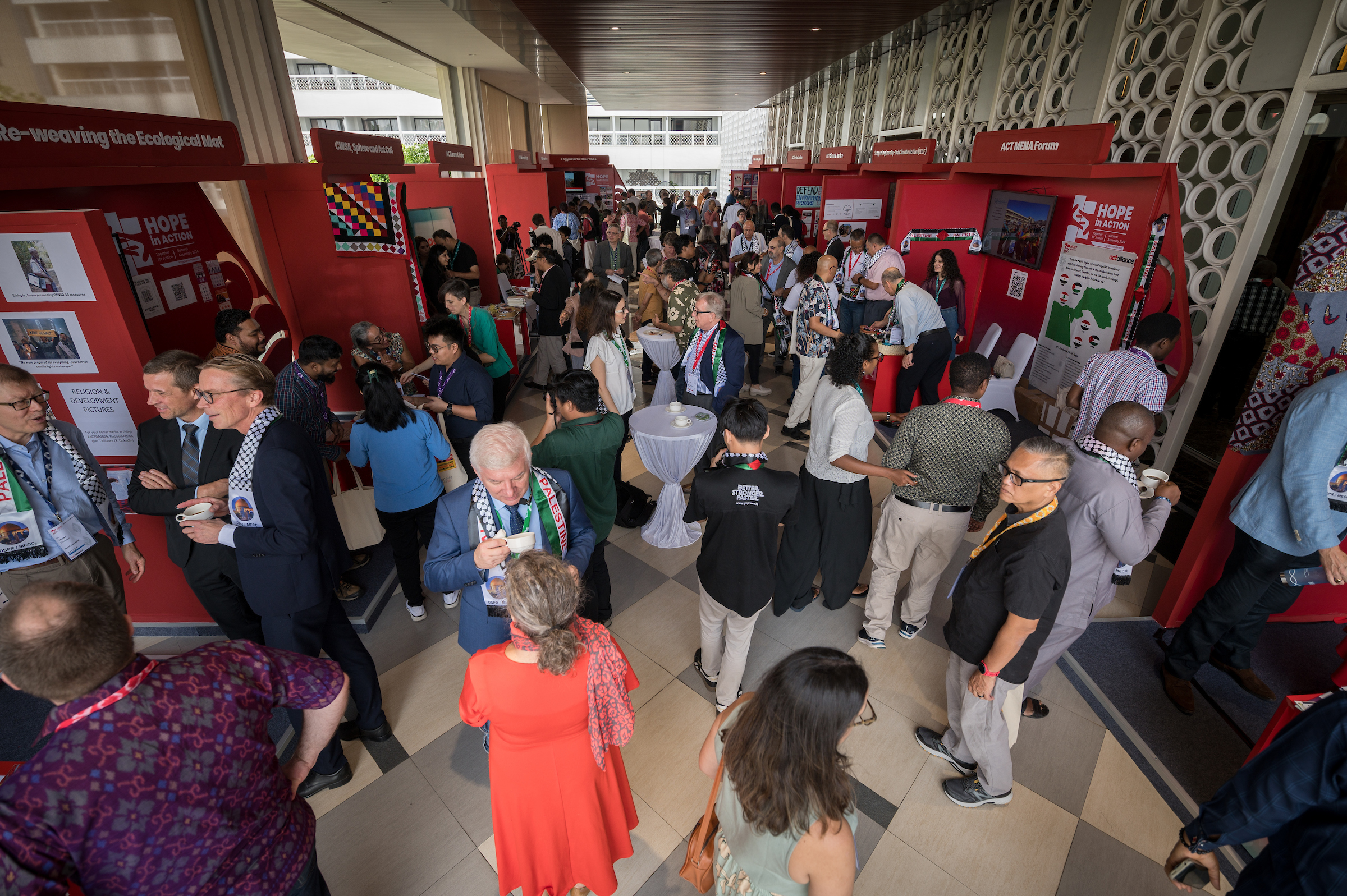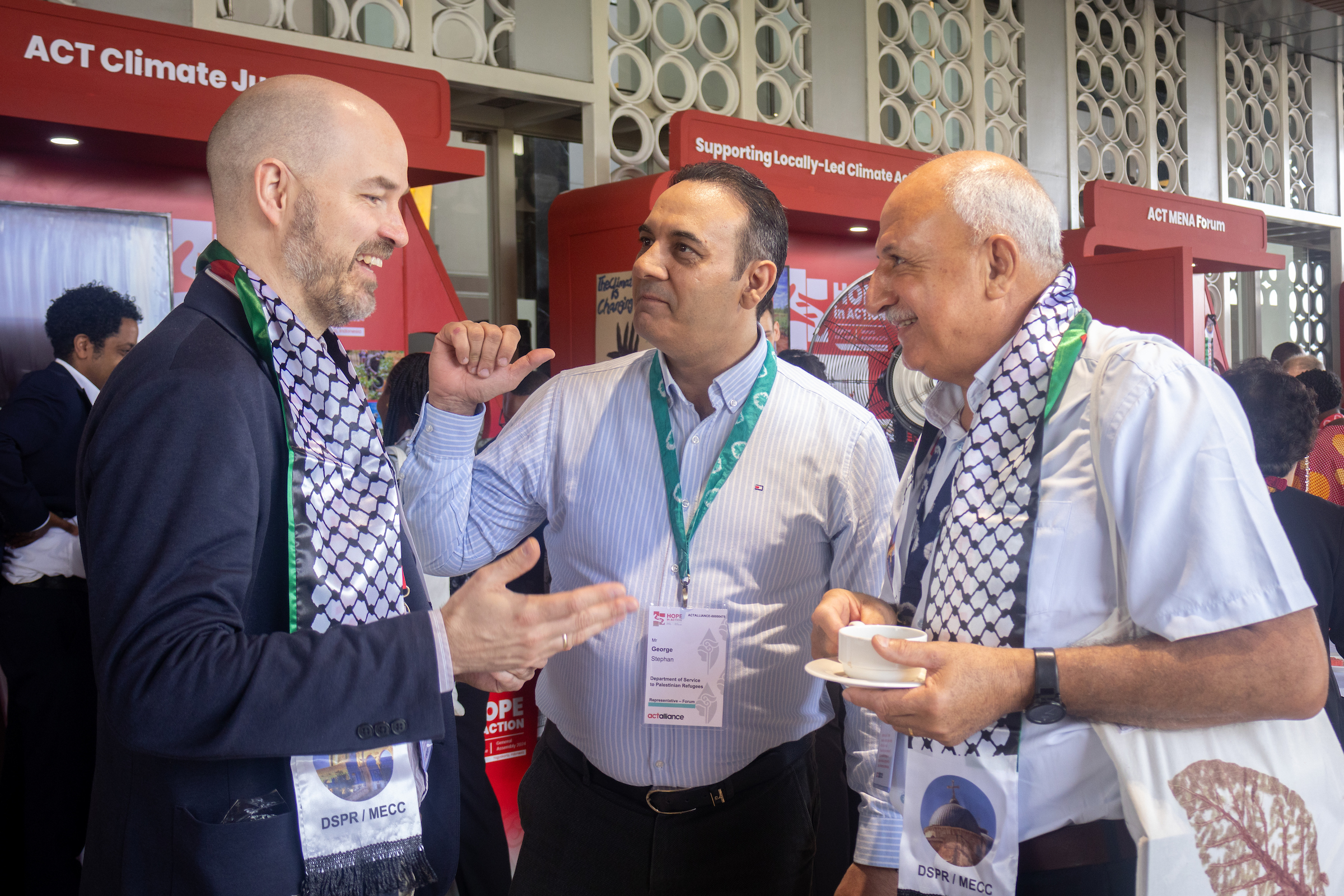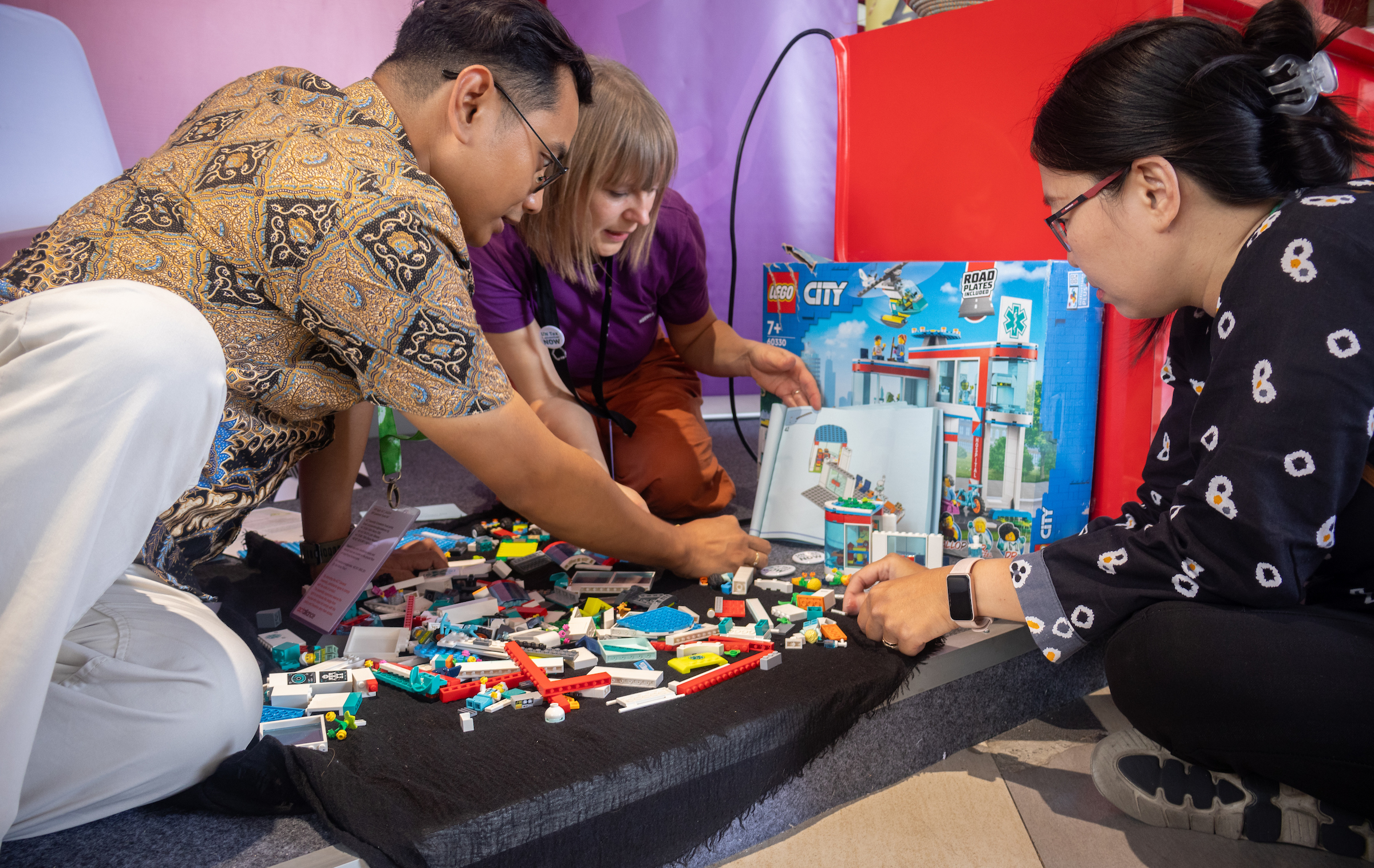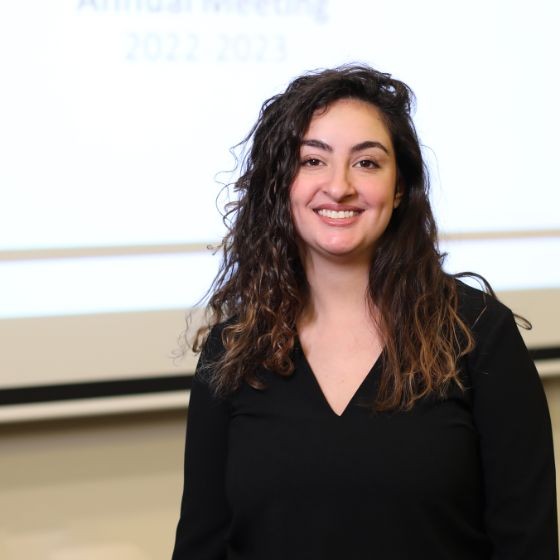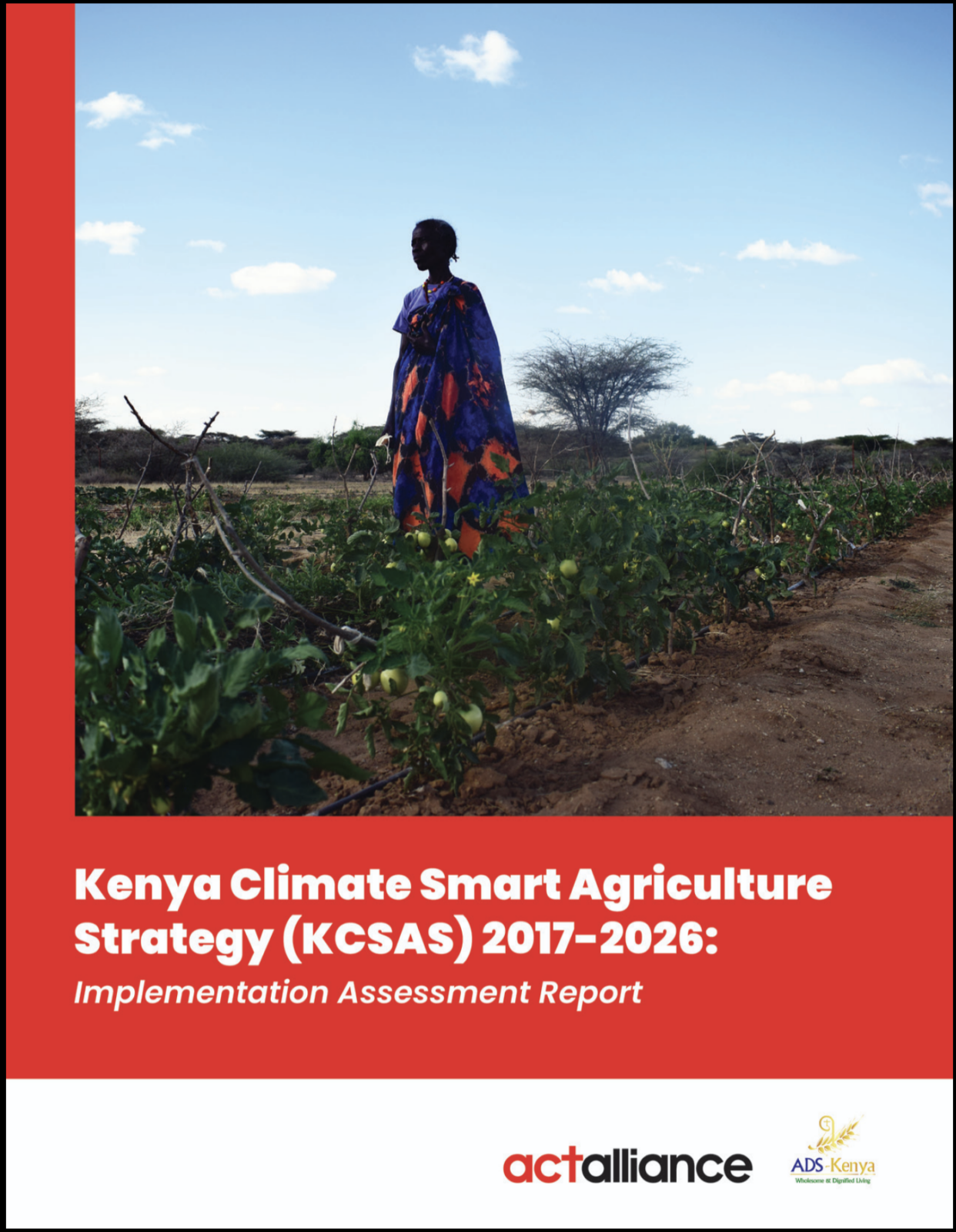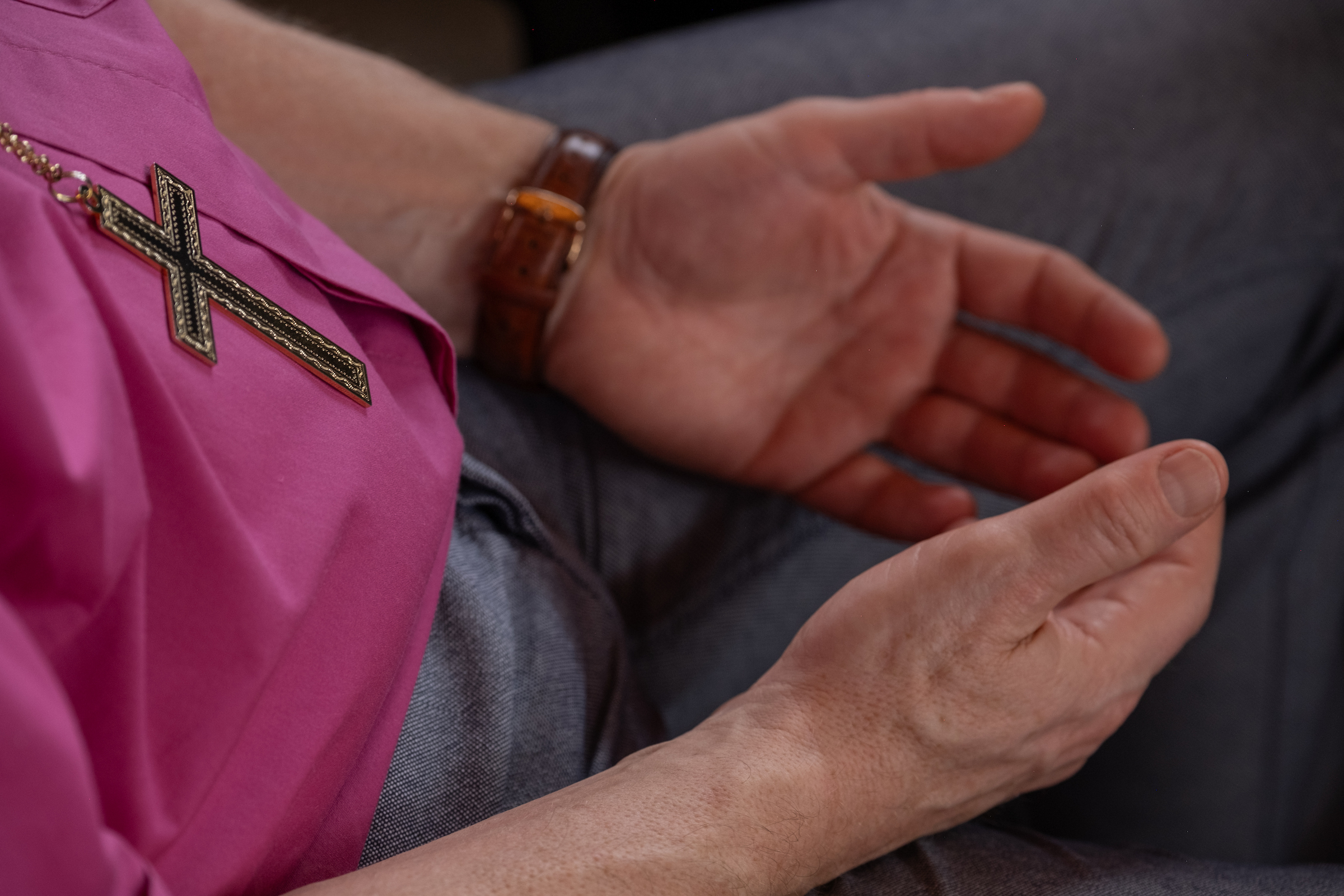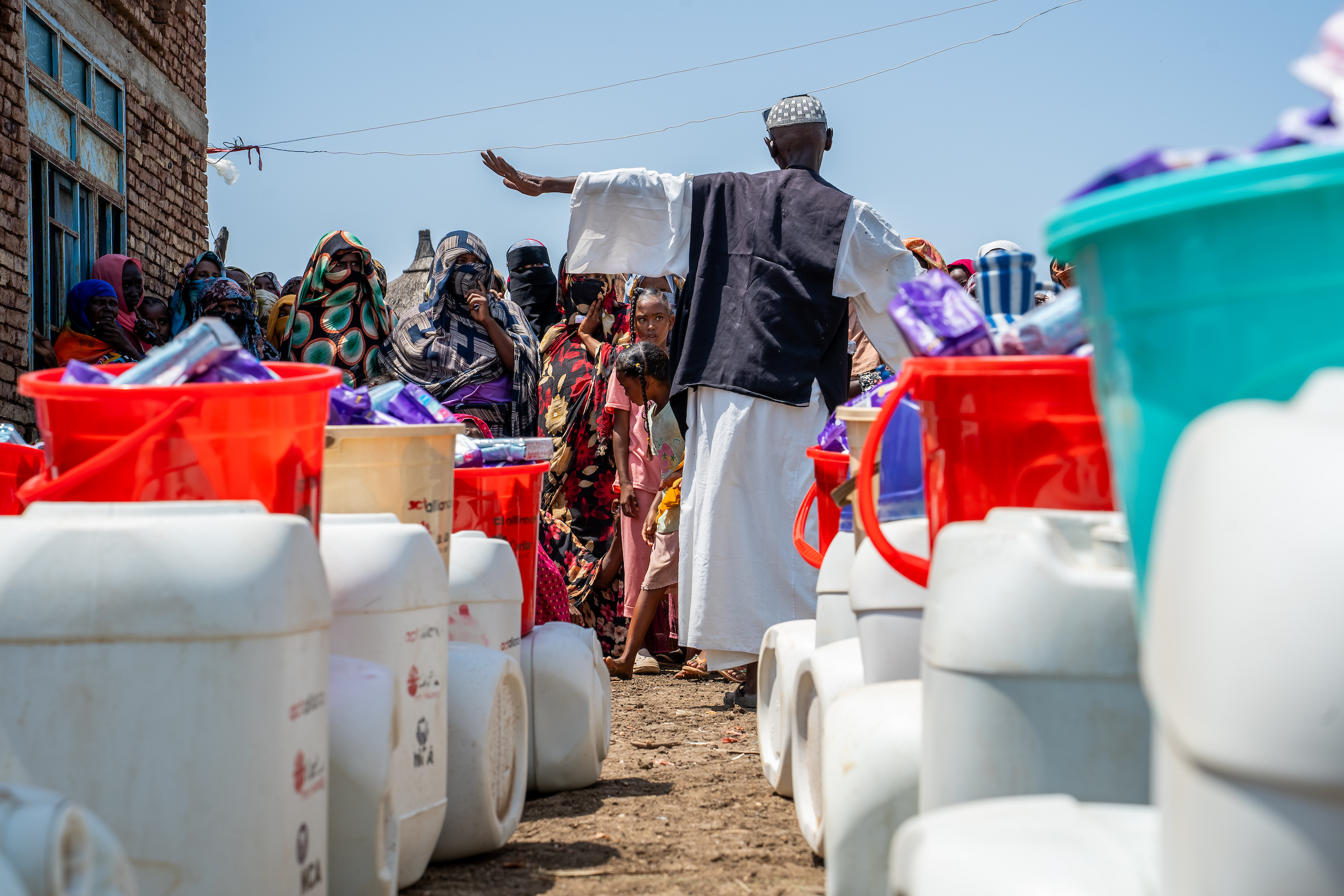One of the themes of the ACT Assembly is “Together for Justice” and this is very much what is happening in ACT’s Exhibition Hall, where you will find booths representing MENA, Africa, ACT’s Indonesian members and partners, and ACT programmes such as Gender Justice and Climate Justice. Also with booths are those close to ACT, such as FABO and Sphere. This is an opportunity for members from around the world to learn more about the work of these regions, programmes and initiatives.
“This is an opportunity for conversations with people who are interested and curious,” says Christoffer Bengtr Meier. He works with DanChurchAid representing these programmes. “We are able to connect here to the whole world.”
Wilfer Rigamoto of the Pacific Council of Churches is hosting a booth called “Reweaving the Mat,” a reference to their environmental and climate work in the Pacific region. “This experience has been very positive,” he says. “This concept is new for people here and they are hoping to learn more and collaborate in future.”
The Indonesian members, partners and churches have three booths side by side. Agnes Manggo, a programme manager with YAKKUM, displays a diorama of an innovative tree planting project called Javanese Bamboo Sewing Earth. Initiated by a youth group, the project draws on traditional knowledge of how to stabilize hillsides in the rainy season. “This is an opportunity for us to show what we do with local communities,” says Agnes. “It goes beyond the project report, because people who visit can ask us questions.” There is an accompanying illustrated book geared to local communities that explains this process, along with others.
Silje Ander of Norwegian Church Aid represents the ACT UN Tax Convention CoP at another booth, one which features a large hospital made from Lego. “We use the hospital to show what we can fund if we manage to negotiate a UN Tax Convention,” she says. “Not only hospitals, but schools, international development, humanitarian relief and social programmes. It’s great that our booth is situated between the gender justice and climate justice booths, as these are also what can be funded if there were fair taxation.” Silje points out that the impetus for the UN Tax Convention, which will be most likely negotiated next year, initially came from the African states, who pointed out that the current international taxation regimes are neither democratic or transparent.
The Exhibition Hall is open to visitors during morning and afternoon coffee breaks, and at lunch until the end of the Assembly on Friday. There are 16 exhibitors in total spread over 13 booths; make sure to visit them all.
